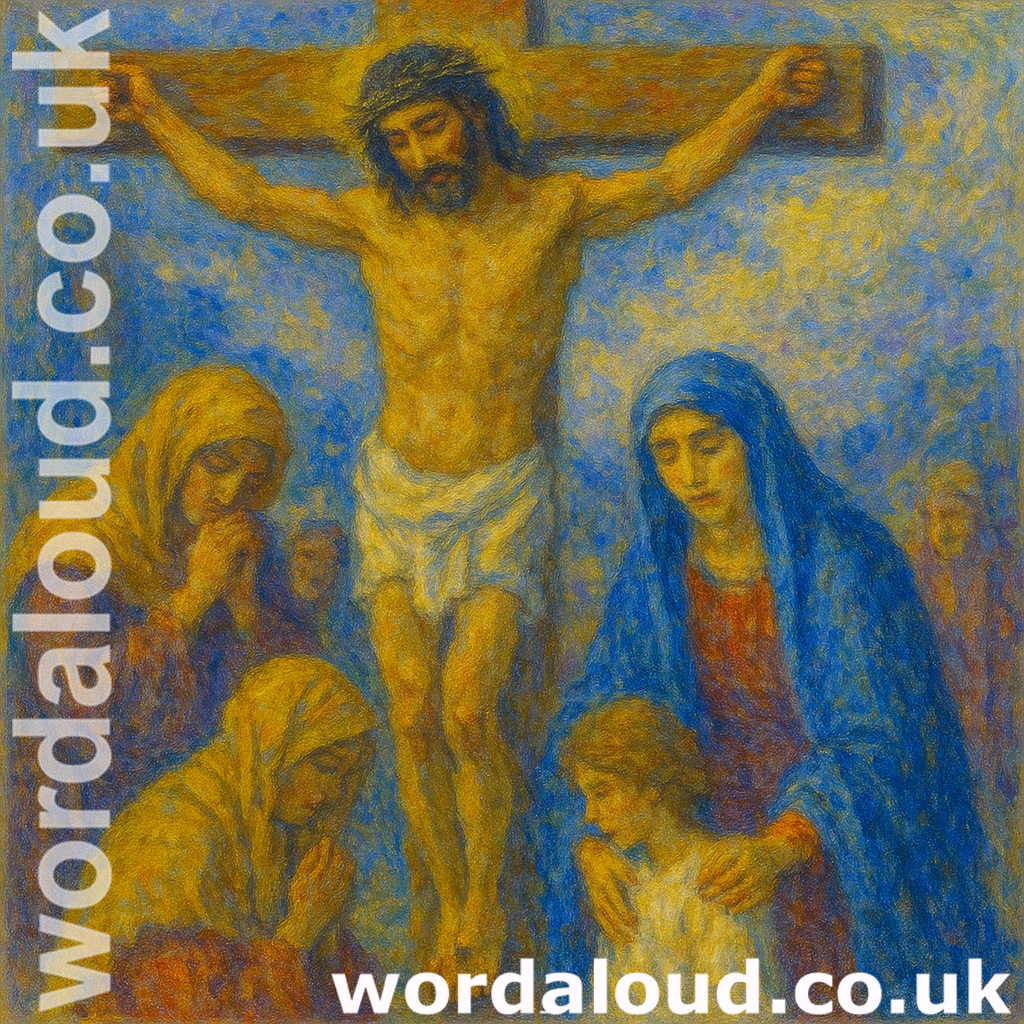Christian Art | Parables Of The Grain Of Mustard Seed And The Leaven
Mathew 13: 31-35 – Week 17 Ordinary Time, Monday (King James Audio Bible KJV, Spoken Verse)
31 ¶ Another parable put he forth unto them, saying, The kingdom of heaven is like to a grain of mustard seed, which a man took, and sowed in his field:
32 Which indeed is the least of all seeds: but when it is grown, it is the greatest among herbs, and becometh a tree, so that the birds of the air come and lodge in the branches thereof.
33 ¶ Another parable spake he unto them; The kingdom of heaven is like unto leaven, which a woman took, and hid in three measures of meal, till the whole was leavened.
34 All these things spake Jesus unto the multitude in parables; and without a parable spake he not unto them:
35 That it might be fulfilled which was spoken by the prophet, saying, I will open my mouth in parables; I will utter things which have been kept secret from the foundation of the world.
Cf. Luke 13: 18-21. The two parables make it clear that Christ intended the newly inaugurated phase of the history of our salvation to be the work of ages. His second coming was not to be an apocalyptic end of the world as we know it in weeks, months or just a few years after that first Easter. The world’s faith would grow with time. Christ’s Church would grow, to encompass the whole world. Christ intended the Gospel be preached to everyone the world over and through all subsequent history.
Jesus teaches the disciples these parables to give them confidence. The beginnings of Christianity must have seemed very small, with just a little group of disciples to carry God’s word to the nations, but just as a little mustard seed grows to become a tree, or as a small lump of leaven causes the whole new dough to ferment and rise, so the disciples can believe that the Lord is with them and the preaching of the Gospel will spread despite everything.
The seed, cast into the ground, as it were dies and is buried, then the new life grows. The leaven is hidden in the flour, and the whole of the dough is leavened. The parables anticipate Christ’s death and resurrection. This is their hidden meaning, which will be fully revealed through the events of Easter.
Additionally: Just as Jesus teaches in these parables of that which is small becoming great, through the process of being hidden, in the earth or in the as yet unleavened dough, so Jesus teaches us, as the Gospel Evangelist teaches us, that the parables themselves reveal that which has been hidden, drawing the listener from a particular instance, readily recognizable from everyday life, to an understanding of matters of deep spiritual and cosmic significance.
We think in this context of God’s previous interventions in history, particularly his revealing himself to the people of Israel, and the giving of the Law to Moses. Humanity had fallen away from our first easy knowledge of God. Thenceforth, it was for God to manifest himself gradually in history, giving the Law, calling and guiding the chosen people, while in many ways remaining obscure, awaiting the time we should be ready to receive a more complete revelation.
Now, in the person of Jesus, that which was hidden has been revealed. Jesus, the new Torah, is God fully present among us, enabling our salvation, such that, to those who are of good disposition, the truth is now fully revealed. As we listen to the parables, we listen to Jesus revealing himself and calling us, through the texture of everyday life, through which we may now discover God with us, Christ our brother drawing us to him, to complete our lives, unveiling the truth of our relationship with God, helping us toward being perfect.
Concluding Prayer
Lord, be the beginning and end
of all that we do and say.
Prompt our actions with your grace,
and complete them with your all-powerful help.
We make our prayer through our Lord.

![]()
King James Audio Bible | Endnotes
Parables Of The Kingdom Of Heaven
The Parables of the Grain of Mustard Seed and the Leaven are two related parables told by Jesus. They serve as illustrations of the transformative power of God’s kingdom and are among the many parables of Jesus that hold a significant place in the teachings of Christianity.
The Parable of the Grain of Mustard Seed is found in Matthew 13:31-32 and Mark 4:30. In this parable, Jesus compares the Kingdom of Heaven to a mustard seed, which, although it is small, grows into a large tree where birds can come and find shelter. The parable emphasizes the transformative power of the Gospel and the growth of God’s kingdom from small beginnings. It is to encourage Christians to trust in the growth of the Gospel – indeed to know that this is Jesus of Nazareth, such an obscure little place, and that from Nazareth he is sent to redeem the whole world.
The Parable of the Leaven is found in Matthew 13:33 and Luke 13:20-21. In this parable, Jesus compares the Kingdom of Heaven to a woman who took leaven and mixed it into three measures of flour until all of it was leavened. This parable is often interpreted as a warning against complacency in one’s faith and the need to seek continually the transformative power of God’s Kingdom. According to some religious authorities and scholars, the leaven symbolizes the transformative power of the gospel to change lives and bring us to the Kingdom of Heaven.
The parables are related in that they emphasize the transformative power of God’s kingdom and the increase of the Gospel. The Christian Cross and other Christian gifts serve as a reminder of the sacrifice of Jesus on the cross and the ultimate victory of good over evil. The teachings of the Church of Jesus Christ stress the importance of living a righteous life in accordance with God’s will, and Christian prayer is an important part of this process.
An understanding of the meaning of parables is that within the context of engagement with the parables we are present with Jesus in the Garden of Gethsemane – toward crucifixion of Jesus and hence redemption.








